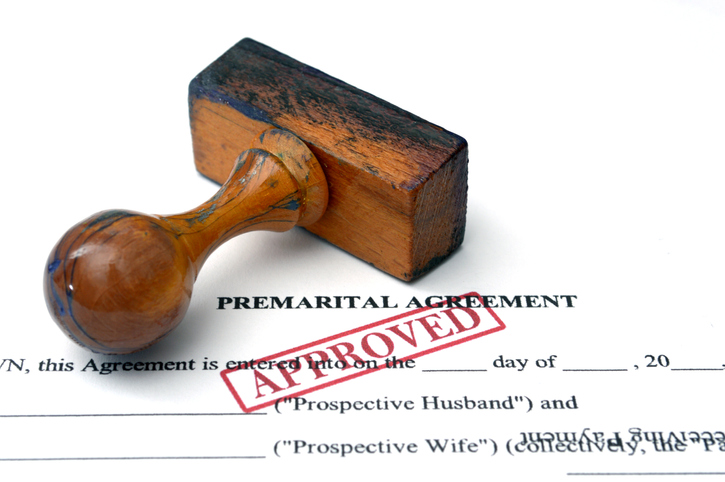 When parties to a Texas divorce agree to a property division, the final judgment based on the agreement must strictly comply with it. The trial court cannot add, change, or leave out material terms. A final judgment based on a property division agreement must be set aside if it is not in strict compliance with the agreement, unless the discrepancy is a clerical error. An appeals court may modify a judgment to correct a clerical error. A former husband recently challenged the property division in his divorce due to a number of alleged discrepancies.
When parties to a Texas divorce agree to a property division, the final judgment based on the agreement must strictly comply with it. The trial court cannot add, change, or leave out material terms. A final judgment based on a property division agreement must be set aside if it is not in strict compliance with the agreement, unless the discrepancy is a clerical error. An appeals court may modify a judgment to correct a clerical error. A former husband recently challenged the property division in his divorce due to a number of alleged discrepancies.
Husband and Wife Submitted Proposed Property Division
According to the appeals court’s opinion, the parties agreed to a proposed property division, identified as “Exhibit A.” The wife testified the division was fair and just. She agreed to split funds in the husband’s IRA equally after he was credited $90,000 as separate property and to split the funds in his “Edge” and “Smart” retirement plans equally.
The husband initially disagreed with the property division in Exhibit A, but later asked the court to approve it. The trial court admitted the document into evidence, asked the parties to draft and sign an agreed final decree.
 Texas Divorce Attorney Blog
Texas Divorce Attorney Blog


 In Texas, separate property can be converted to community property by a written agreement signed by both spouses that identifies the property to be convert and specified it is being converted to community property. Tex. Fam. Code § 4.203. In a
In Texas, separate property can be converted to community property by a written agreement signed by both spouses that identifies the property to be convert and specified it is being converted to community property. Tex. Fam. Code § 4.203. In a  Courts must divide community property in a “just and right” manner in Texas divorce cases. The property division does not have to be mathematically equal, but should be equitable to both parties. To achieve a just and right division, the court needs evidence of the value of the assets before it. In a
Courts must divide community property in a “just and right” manner in Texas divorce cases. The property division does not have to be mathematically equal, but should be equitable to both parties. To achieve a just and right division, the court needs evidence of the value of the assets before it. In a  A trial court may order a post-divorce division of community property that was not divided or awarded to either spouse in a Texas divorce decree. Tex. Fam. Code § 9.201. The court may not, however, order a post-divorce division of property that was already divided in the divorce. The legal doctrine of res judicata prevents a party from re-litigating issues such as categorization of assets or improper division in a new case. Parties must instead address such issues through direct appeals. In a
A trial court may order a post-divorce division of community property that was not divided or awarded to either spouse in a Texas divorce decree. Tex. Fam. Code § 9.201. The court may not, however, order a post-divorce division of property that was already divided in the divorce. The legal doctrine of res judicata prevents a party from re-litigating issues such as categorization of assets or improper division in a new case. Parties must instead address such issues through direct appeals. In a  Texas law presumes that property possessed by a spouse during or on dissolution of the marriage is community property. Tex. Fam. Code § 3.003. The presumption can only be rebutted by clear-and-convincing evidence the property is separate. In a
Texas law presumes that property possessed by a spouse during or on dissolution of the marriage is community property. Tex. Fam. Code § 3.003. The presumption can only be rebutted by clear-and-convincing evidence the property is separate. In a  In a Texas divorce case, property acquired during the marriage is presumed to be community property. A spouse claiming property is their separate property must show that it is separate by clear and convincing evidence. Separate property is generally property that is owned before the marriage, property that the spouse acquired as a gift or inheritance, or property recovered as damages in a personal injury case. Community property is generally property acquired after the marriage that is not characterized as separate property.
In a Texas divorce case, property acquired during the marriage is presumed to be community property. A spouse claiming property is their separate property must show that it is separate by clear and convincing evidence. Separate property is generally property that is owned before the marriage, property that the spouse acquired as a gift or inheritance, or property recovered as damages in a personal injury case. Community property is generally property acquired after the marriage that is not characterized as separate property.

